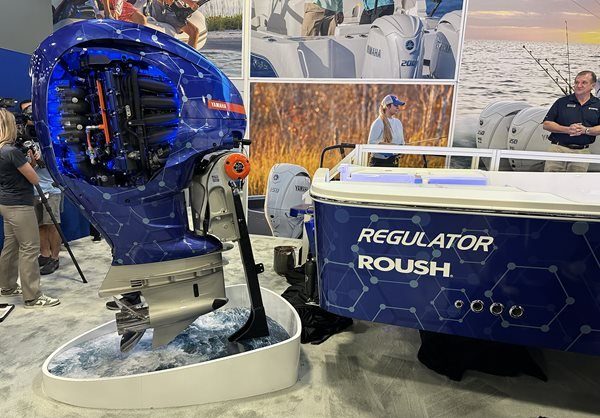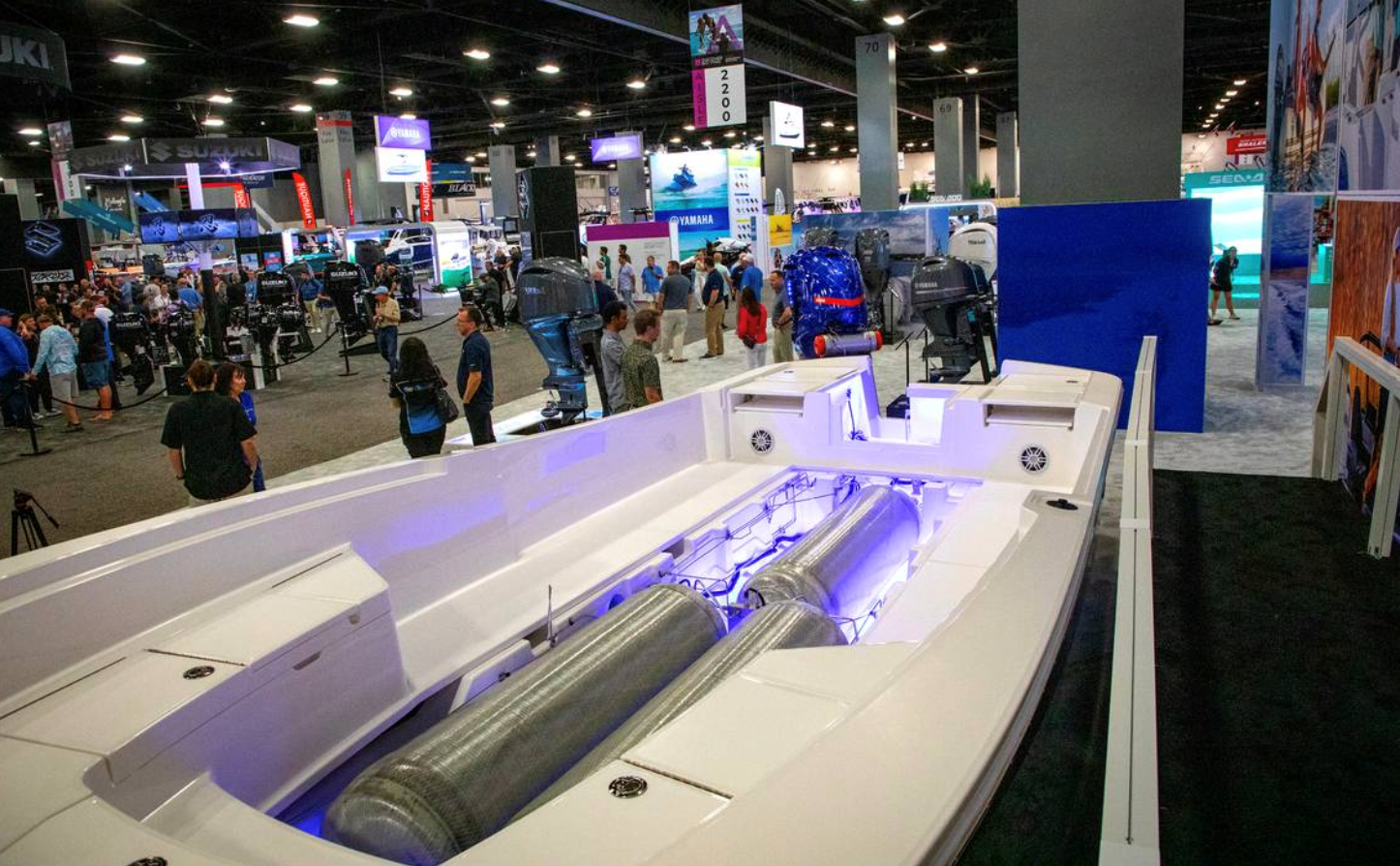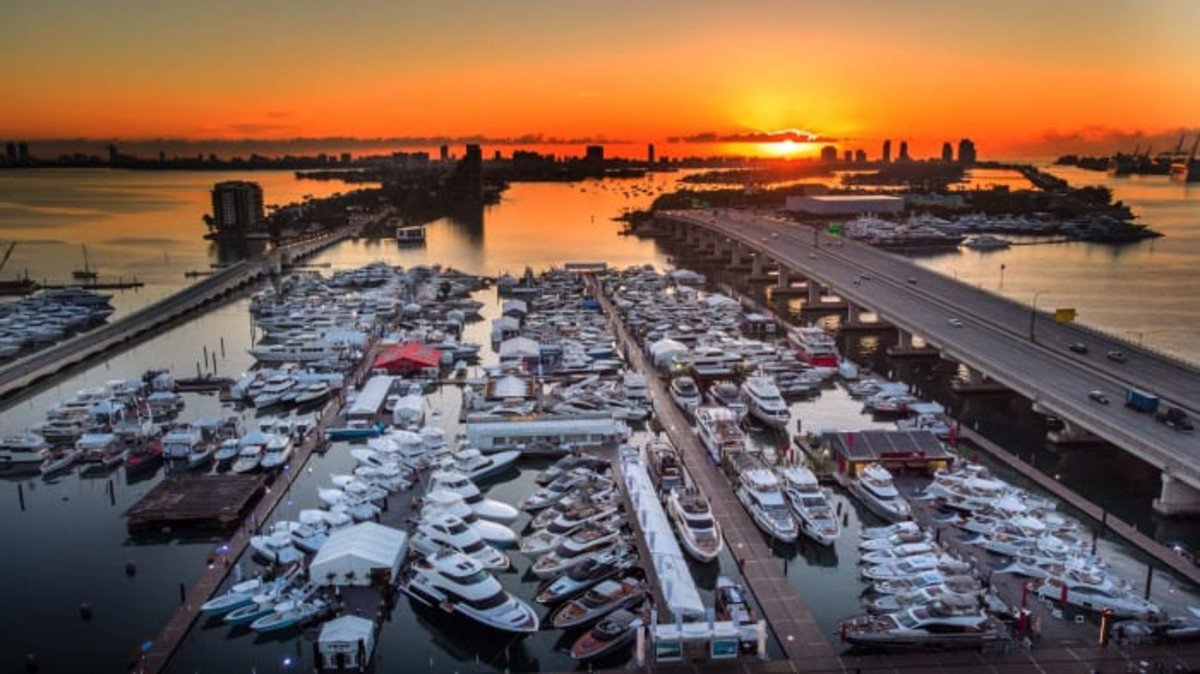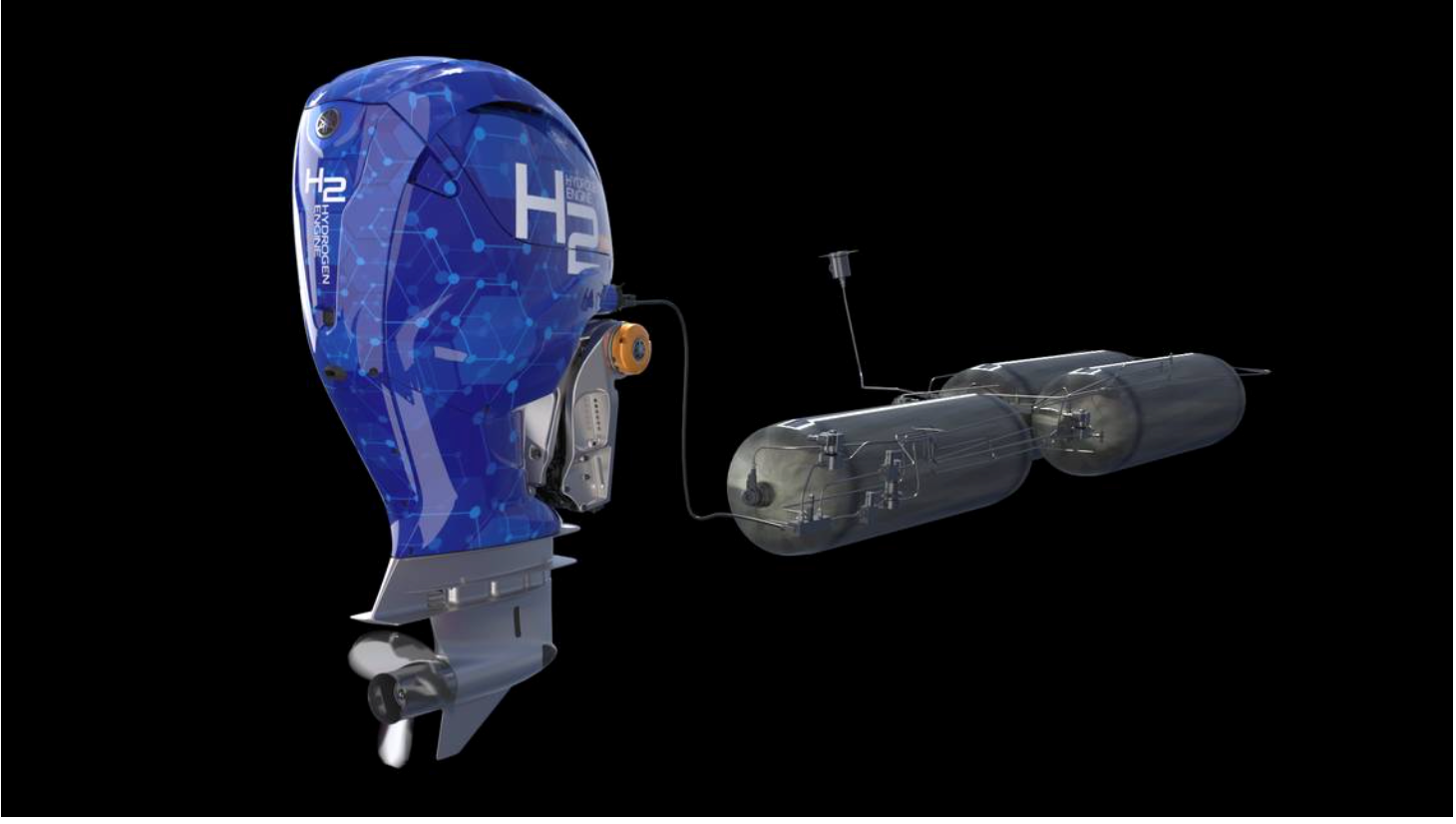Yamaha Reveals Hydrogen Outboard Engine
Yamaha has revealed its new hydrogen-powered outboard engine for recreational boats, along with a prototype fuel system integrated into a vessel that the company plans to refine further for testing later this year.
The engine, which was showcased during the recent Miami International Boat Show 2024 in the US, is the world’s first hydrogen-powered outboard for recreational boats.
“Yamaha is exploring all possibilities to achieve carbon neutrality, and we’ve made commitments for our operations to be carbon neutral by 2035 and our products to become carbon neutral by 2050,” says Ben Speciale, president of the Yamaha US Marine Business Unit.
“That goal within the marine market can only be reached through an approach that leverages multiple solutions. We believe hydrogen is a viable method of achieving these goals.
Partnership with Roush
Yamaha has partnered with US automotive company Roush to develop the fuel system to power the new outboard and collaborated with boatbuilder Regulator Marine to build a boat suitable for testing the prototype outboard. Together, the companies plan to begin testing the prototype for viability on the water in the summer of 2024.
“Yamaha wants to be a leader in this space, and we encourage others in the marine industry to become involved as we look for ways to build infrastructure and new policy around innovations,” says Speciale.
By working with Roush on fuel system engineering, Yamaha says it has gained the benefit of more than two decades of hydrogen systems integration and research.
“When you look at Roush’s history with hydrogen, it ranges from land speed record vehicles to spacecraft. A lot of that knowledge we’ve acquired over the years we are now applying directly to this Yamaha project,” said Matt Van Benschoten, vice president of advanced engineering at Roush.
“We are the fuel systems integrator, responsible for fuel systems designs, all of the specifications development, physical integration, safety system analysis, as well as testing and development. Yamaha is trying to determine if hydrogen can successfully be used in this market, and I think we will find out the answer is ‘yes.’”
Innovation
Regulator Marine built a hull based on the 26XO and modified it to accommodate the hydrogen tanks necessary to power the new outboard. Together, Yamaha, Regulator and Roush displayed the boat hull, fuel system and outboard to demonstrate how hydrogen could work as a possible fuel source in a marine environment.
“If we don’t look for a new source, we won’t find a new source. Innovation starts by asking questions. It creates a little angst, but at the end of the day, good stuff comes out of innovation,” says Joan Maxwell, president of Regulator Marine. “In the future, as we design boats, if this proves what we think it will, it could be very possible that we are designing hulls around these hydrogen fuel tanks.”
Speciale continues: “Through our relationship with Regulator Marine, we have the ability to test our prototype in a premium boating environment that reflects Yamaha’s brand position, and we have the ability to lead the way in the development of hydrogen as a fuel source in marine environments.
“We’re excited to watch this project develop and look forward to taking the next steps.”
Yamaha announced the hydrogen outboard project last December. The company also recently announced plans to acquire all shares of electric outboard company Torqeedo, as it focuses further an alternative propulsion.
The landmark decarbonization report by the International Council of Marine Industry Associations (ICOMIA), The Pathways to Decarbonization for the Recreational Marine Industry, concludes a variety of solutions must be considered to continue reducing carbon emissions from recreational boats.
Due to the diversity of the types of boats in use and the varied experiences sought by boating consumers, from fishing to watersports to cruising, the research found there is no universal, “one-size-fits-all” approach to decarbonising recreational boats. As a result, in addition to current internal combustion and fossil fuel-powered boats, the industry must consider a portfolio of technologies, including hydrogen.



